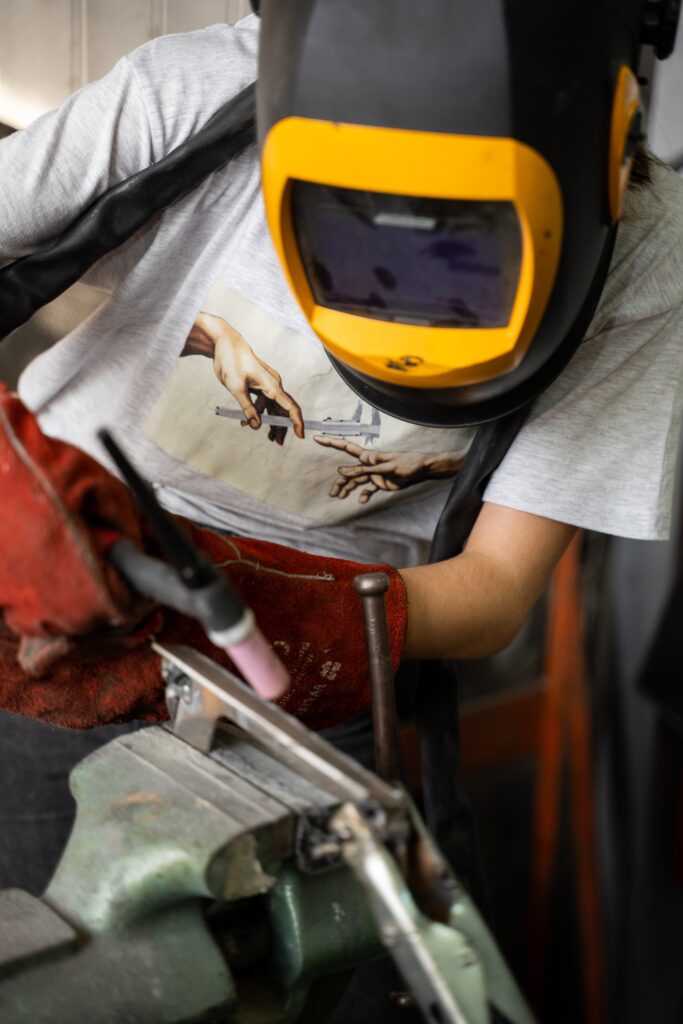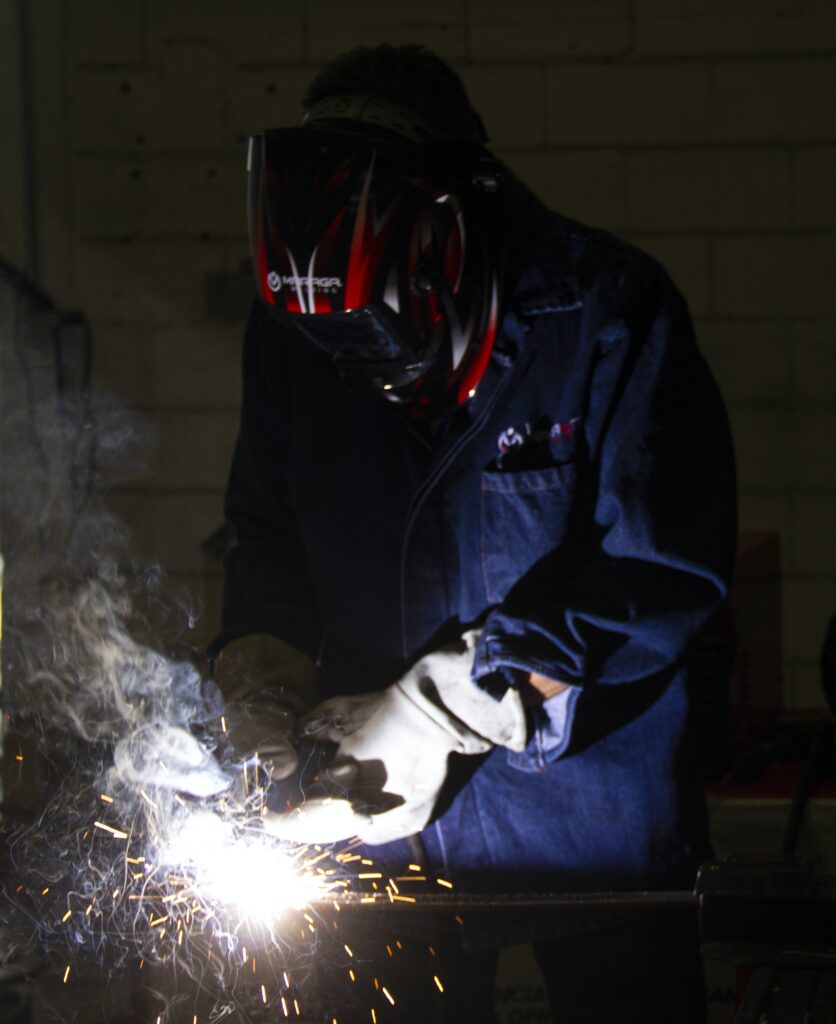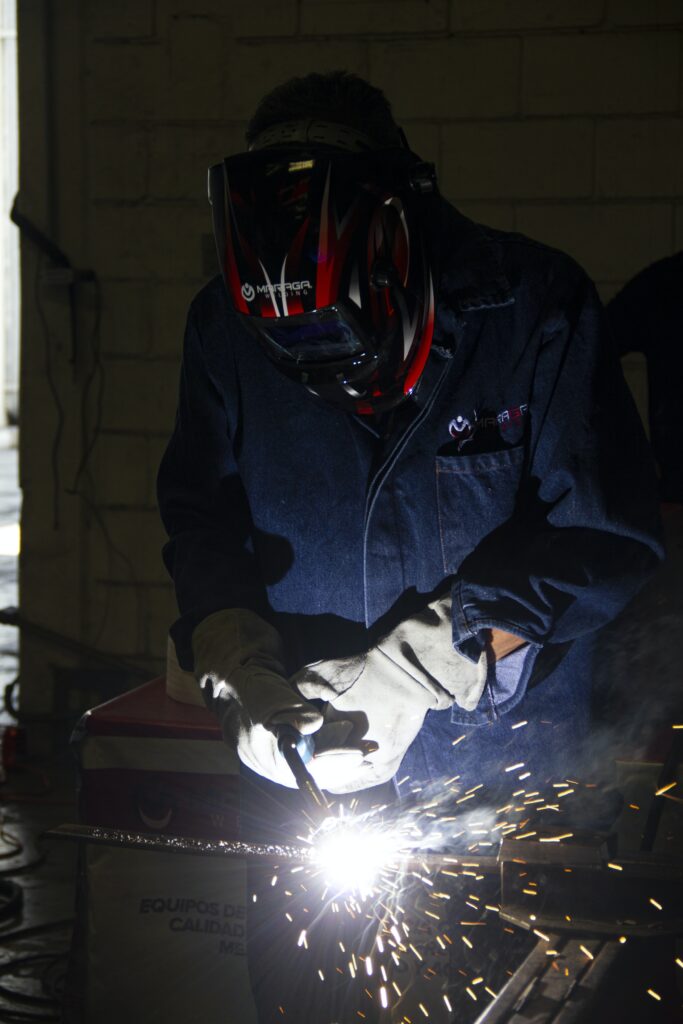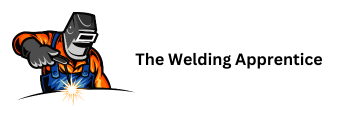Imagine swiftly acquiring an abundance of necessary skills, honing your proficiency, and emerging as a certified professional in record time. We’re speaking about a journey that results in a welder’s certificate, and more importantly, the quickest route there. The race against time can often seem steep but with the right direction, you’re about to learn how to climb this mountain in the least amount of time possible. Let’s get started on how to fast-track your welding certification journey and reach the top before you know it.

Understanding Welding Certifications
Welding certifications add credibility, open doors to more opportunities, and are often required by many employers. They verify your skills and expertise in the welding industry, showcasing that you are competent and well-versed in the craft.
Definition of Welding Certification
A welding certification is a formal recognition given by a relevant authority that you possess the necessary knowledge and skill set required in the welding sector. It’s not just an acknowledgment, but a testament that you are qualified to execute specific types of welding tasks, maintaining a standard of quality and safety.
Types of Welding Certifications
There are numerous types of welding certifications available. Some are based on the welding technique – like TIG, MIG, Stick or Flux Core Arc Welding. Others depend on the specific sector you aspire to work in, where certifications given out by the American Welding Society (AWS), for instance, are well-known. Based on your career goals, you can tailor which certification suits you best.
Importance of Having a Welding Certification
A welding certification is a validation of your knowledge, capabilities, and commitment to the field. With this, it can increase your job prospects and earning potential as many employers prioritize hiring certified welders. Moreover, getting certified assures that you’re able to comply with the safety guidelines and quality standards, further reinforcing trust with employers and customers.
Preparing for a Welding Certification
The journey of acquiring a welding certification takes time and effort. Preparation is the gateway to earning that all-important credential.
Why Preparation is Key
Rushing to take the certification tests without ample preparation increases the chance of failure. A comprehensive preparation ensures that you understand the skills and knowledge the test covers, and consequently, boosts your confidence and likelihood of passing.
Identifying Your Goals
Before you start, identify your career goals. Knowing what type of welding you want to specialize in and the sectors you aim to work will guide you in choosing the right certification program to map out your preparation.
Gaining Basic Welding Knowledge
Certifications test a combination of both written knowledge and practical skills. Master the fundamental concepts, safety procedures, and basic welding techniques. Be continually curious, and your base of knowledge will expand in all the right areas.
Choosing the Suitable Certification Program
It is paramount that the certification program you choose aligns with your career goals, and sets you up for success.

Fast-Track Welding Certification Programs
Fast-track welding certification programs are designed to help you achieve your certification within a shorter timeframe.
Characteristics of Fast-Track Programs
These programs are often intense and rigorous, focusing on the essential aspects that you need to master for the certification tests. Time is of the essence, so expect a packed schedule with hands-on practice sessions and theoretical lessons.
Advantages of Fast-Track Programs
Fast-track programs allow you to acquire your certification quicker, thus enabling you to enter the job market sooner. They can be an excellent option if you’re eager to start working, or if you have some welding background.
Potential Drawbacks of Fast-Track Programs
However, remember that fast does not always mean easy. These programs can be challenging as they compress a vast amount of learning into a shortened period. Also, some depth or subject areas may be left out due to the brevity of the program.
Required Skills and Knowledge for Welding Certification
Welding requires more than just joining two pieces of metal together.
Basic Welding Techniques
Various welding techniques require a distinct set of skills. Your hands should be steady, and your eye-hand coordination must be excellent. You also need a clear understanding of how to use each technique appropriately according to the task at hand.
Understanding Welding Safety Procedures
Welding involves potential hazards, hence, safety is paramount. You should be familiar with safety procedures, and know how to use safety equipment. Part of this entails knowing how to avoid accidents and deal with emergencies.
Knowledge on Welding Materials & Equipment
Materials react differently under the heat of welding, so it’s crucial to understand the characteristics of the materials you’re working with. Additionally, knowledge of using and maintaining various welding equipment is essential.

Choosing the Right Welding School
The quality of training you receive directly impacts your success as a welder.
Accredited Institutions
Make sure the school you enroll in is accredited and recognized. This assures that their curriculum meets the industry standards, thus boosting your chances of success in the certification exams.
Quality of the Training
Look for a school that offers comprehensive training covering both theoretical concepts and hands-on experience. Good schools have experienced instructors who provide personalized feedback to enhance your skills.
Job Placement Assistance
Some schools have job placement programs that help you secure a job after certification. This is an added advantage that can set the course for your welding career.
Availability and Accessibility of Equipment
The school should have a fully equipped workshop to offer practical training. You should also be able to access the equipment and materials during your free time for extra practice.
Online Welding Certification Programs
Online certification programs can be advantageous, but there are factors you should consider before enrolling in one.
Advantages of Online Certification Programs
These programs provide flexibility, letting you to learn at your own pace and convenience. They also eliminate the necessity of commuting, saving you time and resources.
Disadvantages of Online Certification Programs
Despite its advantages, online certifications often lack the real-life, hands-on experience that’s critical for this field. They may also lack the interactive engagement and immediate feedback that a conventional class offers.
Key Considerations before Picking an Online Program
Ensure the curriculum is industry-standard compliant, that there’s a support system in place offering assistance, and that the program has a good track record of producing successful graduates.
Taking Welding Certification Tests
The next part of your journey is taking the certification test.
Understanding the Examination Structure
Most welding certification tests commonly have written and practical parts. Familiarizing with the exam format and types of questions can help you better prepare for what’s in store during the actual test.
Revision and Preparation Techniques
Regular practice and revision of both theoretical knowledge and practical skills are key. Make use of welding manuals, practice tests and seek advice from experienced welders for practical guidance.
Tips for Passing the Certification Tests
Be consistent in your revision, get enough rest before the test day, and manage your time well during the examination. A positive and composed mindset can significantly contribute to your success.
Costs of Obtaining a Welding Certification
Getting a welding certification is an investment, and like any investment, it requires money.
Breakdown of Certification Costs
The total cost includes tuition, examination fees, and cost of materials used during the training. Different programs have different pricing, so it’s crucial to check and be sure you understand all associated costs upfront.
Scholarships and Financial Aid Availability
You can seek financial assistance through scholarships, grants, and student loans offered by various institutions. Make sure to explore your options before making a decision.
Cost-Benefit Analysis of Welding Certification
Despite the costs, getting certified as a welder is a decision that pays off in the long run. A certification aids you in securing good jobs, and it often translates into higher earnings.
Career Opportunities with a Welding Certification
A welding certification isn’t the end of the journey, but the beginning of lots of opportunities.
Job Prospects for Certified Welders
With a certification, you become highly marketable with increased job prospects. Certified welders are needed in sectors like construction, automotive, manufacturing, petroleum, and even space exploration.
Average Salaries of Certified Welders
Certified welders typically earn higher salaries than their non-certified counterparts. The exact wage varies depending on the job type, location, and level of experience.
Career Advancement Opportunities in Welding
Certification can be a stepping stone towards higher roles in the welding industry. You may choose to become a welding supervisor, inspector, or even a welding educator.
Maintaining and Renewing Your Welding Certification
Once you’ve earned your certificate, the journey isn’t over.
Why Maintenance and Renewal is Important
Welding certifications have an expiration date. Regular maintenance and periodic renewal of your certification help you stay relevant and updated in the continually evolving welding industry.
Steps in Maintaining and Renewing a Certification
Maintaining your certification includes keeping track of your welding projects and periodically submitting evidence of your ongoing practice to the certifying body.
Costs Associated with Maintain and Renewal
Costs could include renewal fees and possible continuing education. However, staying certified, in the long run, is definitely worth the price.
In conclusion, becoming a certified welder is an exciting journey that unlocks numerous opportunities in the welding industry. It may not always be a smooth ride, but with resilience and determination, it’s certainly a journey worth undertaking.
